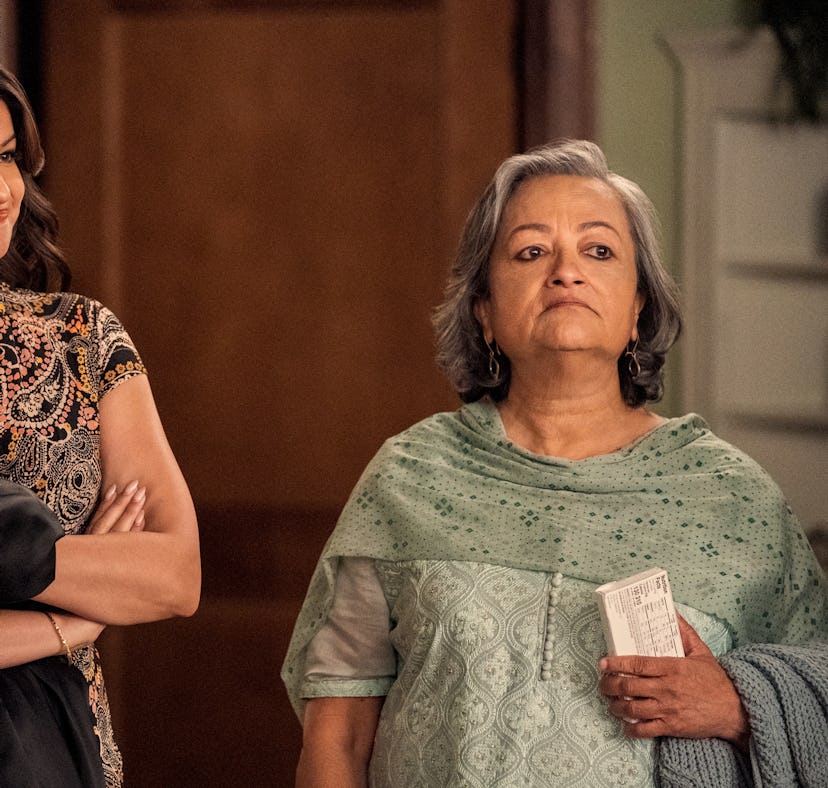
Yes, That “Anti-Communist” Show Mentioned In Never Have I Ever Is Real
You've probably seen commercials for it.
One of Never Have I Ever’s favorite things to do is reference pop culture staples of the current era to help anchor it in the present day. Season 3 has dozens of them, from Netflix’s own shows — The Queen’s Gambit, Bridgerton, and Squid Game — to cultural juggernauts like The Mandalorian and Ted Lasso. But the most hilarious reference in Never Have I Ever Season 3 is the one to the semi-ubiquitous Shen Yun stage show.
Warning: Spoilers for Never Have I Ever Season 3 follow. When Devi and Des started dating in Season 3, Episode 7, it was a huge milestone for her, finally moving on from the Paxton-Ben dynamic of the first two seasons. But Des, who is also Indian, had the same problem Devi does: an over-zealous mother. Devi was desperate to manage a night at home without adult supervision, and Eleanor proposed a game night with a huge group. But the problem remained in how to get Devi’s mother, Nalini, and her grandmother Nirmala, out of the house, preferably with cousin Kamala.
The opportunity presents itself in the form of free Shen Yun tickets, which Devi manages to snag from her teacher. Her mother and grandmother are politely confused, but hey, free tickets to a night out — even if it’s for something as randomly specific as this “anti-Communist” dance performance — why not?
Yes, you read that right. And although this stage show sounds made up for the series, it’s a real thing.
A U.S.-based non-profit entertainment touring company, Shen Yun Performing Arts (which in Mandarin is literally “divine rhythm arts troupe”) is a conglomerate of performance troupes, sections of which perform all over the country. If you live in urban areas, you may have seen posters for it, or local commercials announcing the company’s triumphant return to your local performing arts center.
The show’s throwaway line about it being “anti-Communist” refers to the company’s roots in the Falun Gong religious movement. Founded in the 1990s, Falun Gong, literally “law wheel practice,” is a religion in the Buddhist tradition that mixes moral philosophy, meditation, and chi (or qi) cultivation. Since the movement took off, the Chinese Communist Party has attempted to persecute those who practice it. Therefore, the dance troupe’s performances are usually seen as a rebuke to communism, even as it entertains.
Devi may not have managed to get Des into bed while her family was out, but at least they were entertained, and the tickets did not go to waste.
All episodes of Never Have I Ever Seasons 1 through 3 are streaming on Netflix.